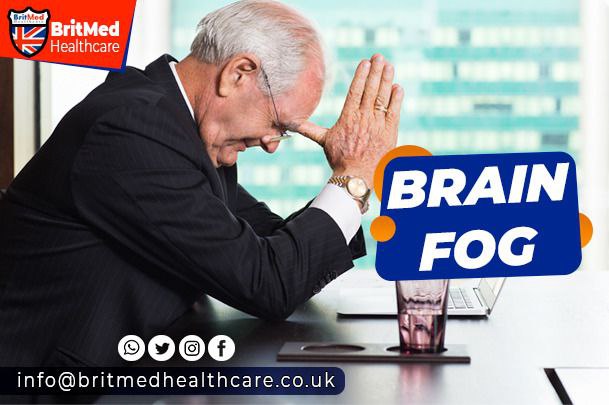Brain fog:
Definition, Causes, Symptoms, and 5 Treatment Options.
Brain fog, sometimes called as a mental haze, has been referenced briefly in recent
years but has gained prominence since the pandemic began. This document provides a
full discussion of this ailment, including its likely causes and effects, as well as the type of treatment.
Definition of Brain Fog:
Brain fog is a situation in which a person is unable to think clearly, becomes confused,
and has difficulty concentrating.
Causes Of Brain Fog:
There are several reasons of brain fog, including:
Symptoms may include hormonal imbalances, psychological trauma, fatigue,
depression, and medication-related side effects.
Brain Fog Symptoms:
The severity and symptoms of brain fog might differ between individuals. Some of the
common symptoms are:
-Difficulty recalling simple information
-Inability to concentrate and focus.
-Confusion and indecision.
-Symptoms may include feeling disconnected from reality, fatigue, and tiredness.
Clinical Treatments for Brain Fog Treatment depending on symptoms is as follows:
1. Regular mindfulness and relaxation exercises will reduce stress and improve
cognitive performance.
2. Mental and Cognitive Exercises: Play mental games such as scrabble, Sudoku,
chess, or any other game to use your brain while also exercising it physically.
3. To promote a healthy diet, food should be balanced, including fruits, vegetables, whole grains, and some lean protein sources.
4. Physical exercise, or more specifically, regular physical activities, increase cognitive function and, as a result, health. Some drugs, as well as a healthy diet, may help to prevent, treat, or alleviate some of the symptoms of brain fog.
According to recent studies, fog could be a long-term COVID-19 symptom.
Other
research have suggested that brain fog is linked to damaged mitochondria in the brain.
One of the causes of the damaged mitochondria’s poor health could be such brain fog.
symptoms, as well as other really disturbing side effects of this terrible disease.
Prevention and Treatment for Brain Fog
Unfortunately, brain fog has no known treatment. The sole preventative and
therapeutic measures are:
“Practicing mindfulness and relaxation techniques” To improve mental health, consider
engaging in mentally stimulating activities, eating a healthy diet, exercising regularly,
managing stress and taking prescribed medications.
Conclusion
Brain fog is a common ailment that has a significant impact on daily activities. With
knowledge of its causes, symptoms, and therapy, one can attempt to manage the
problem on the one hand while striving to improve his well-being on the other.
Hashtags for the article:
#BrainFog
#MentalHealth
#CognitiveFunction
#Symptoms
#TreatmentOptions
#BritmedHealthcare
#ProfessorAhmedElMissiry
#NightingaleHospital
Additional Resources
For more information on brain fog, please visit Britmed Healthcare at
https://britmedhealthcare.co.uk/blog/.
Book a consultation with Professor Ahmed El-Missiry at Nightingale Hospital at
https://www.nightingalehospital.co.uk/specialist/prof-ahmed-elmissiry/.




